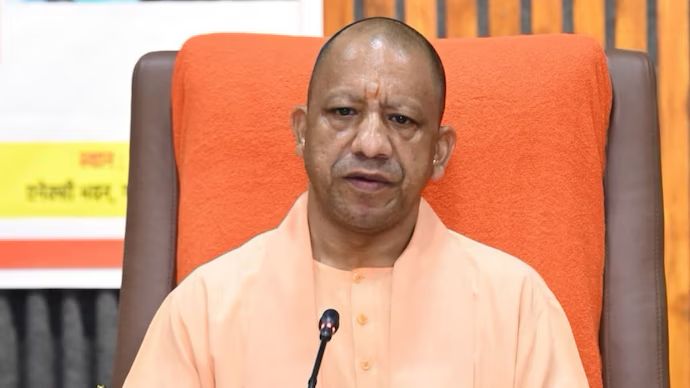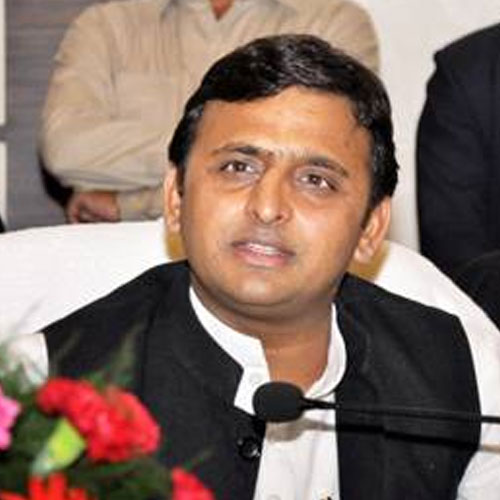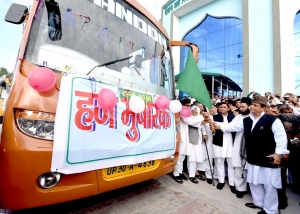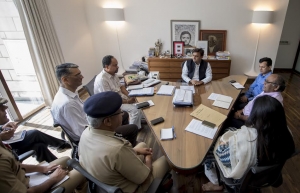Uttar Pradesh Bans Caste References in Police Records, Public Spaces, and Political Rallies

Lucknow, Sept 22, 2025 In a major move aimed at curbing caste-based discrimination, the Uttar Pradesh government has issued a comprehensive order banning references to caste in police records, official documents, vehicles, public spaces, and political gatherings. The directive follows an Allahabad High Court ruling that described the glorification of caste as “anti-national” and contrary to constitutional values. Chief Secretary Deepak Kumar, in the official order, instructed all government departments that caste will no longer be mentioned in First Information Reports (FIRs), arrest memos, or other police documents. Instead, the identification of individuals will rely on parents’ names, marking a significant shift in administrative processes. The order also mandates the immediate removal of caste symbols, slogans, and references from police noticeboards, vehicles, and public signage. Caste-based rallies and public events are now prohibited, with law enforcement agencies tasked with closely monitoring social media to prevent violations. However, the government clarified that caste details will still be recorded where legally necessary, such as under the Scheduled Castes and Scheduled Tribes (Prevention of Atrocities) Act. Police Standard Operating Procedures (SOPs) and manuals will be revised to align with the High Court directive. The High Court had observed that including caste in FIRs, arrest memos, and police notices promotes identity profiling rather than objective law enforcement. It argued that such practices reinforce prejudice and undermine the principles of equality enshrined in the Constitution. Acting on the court’s ruling, the Home Department issued a 10-point order to police and administrative authorities on September 21. Key directives include: CCTNS Adjustment: The caste field in the Crime and Criminal Tracking Network & Systems (CCTNS) will be removed, and the state will coordinate with the NCRB for technical implementation. Parental Identification: Police documents will record the mother’s name alongside the father’s or spouse’s name for identification purposes. Temporary Measures: Until system changes are implemented, the caste field will be treated as non-mandatory and left blank. Police Noticeboards: Any caste-related displays or information at police stations must be removed immediately. Arrest and Seizure Memos: Caste information will no longer be recorded in arrest reports, recovery or seizure memos, or personal search records. Vehicle Regulations: Stickers or symbols indicating caste on private or official vehicles will attract penalties under the Motor Vehicles Act. Removal of Signboards: Signs declaring towns, colonies, or districts as caste territories must be dismantled. Ban on Rallies: Public gatherings organized on caste lines are prohibited as they may disturb public order and national unity. Social Media Oversight: Authorities will monitor and act against caste-glorifying or caste-hate content under the IT Rules, 2021. Legal Exceptions: Caste may only be recorded where explicitly required by law. Reacting to the order, Samajwadi Party leader Akhilesh Yadav questioned whether administrative steps alone could tackle deeply entrenched social prejudice. He highlighted long-standing caste-based discrimination and asked what measures would address practices such as forcing individuals to perform menial tasks based on caste or targeting them with false, caste-driven allegations. The government has tasked the Additional Chief Secretary (Home) and the Director General of Police to draft SOPs and amend manuals to ensure full compliance, signaling a major step toward reducing caste-based profiling in the state.




